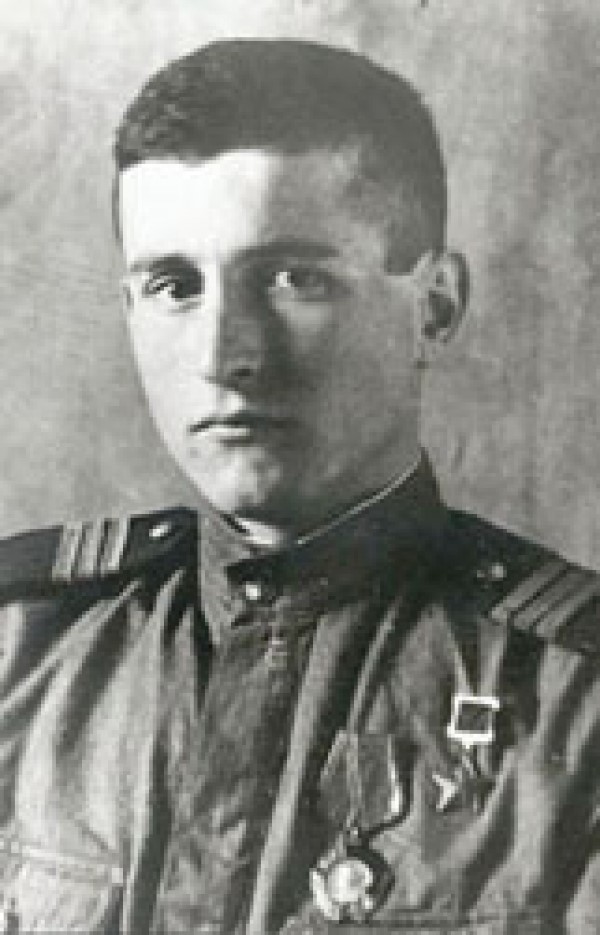Moyshe (in official Soviet documents Moisei) Khokhlov was born in 1923 in Moscow. His father was a bookkeeper. When the Soviet-German war started, Khokhlov was first sent to work at a metal factory in the Urals. In October 1941, when he reached the age of 18, he was conscripted into the Red Army as a mortar man. In the winter of 1941-1942, he was assigned to the Volkhov Front in the North and then transferred to the North Caucasus. In 1943, he took part in the Battle of Kursk. He held the rank of sergeant, and his highest position during the war was deputy commander of a platoon.
In October 1943, Khokhlov, who only a few days earlier had been released from a field hospital, took part in the forced crossing of the Dnieper River. He ordered his soldiers to collect rowboats from local resident and to wrap the oars and oarlocks in rags. During the night that his battalion crossed the Dnieper, Khokhlov pulled a telephone cable across the river. On the right bank of the Dnieper, the Soviets established a bridgehead to divert the enemy's attention from the real site of the crossing. Most of the defenders of this Zhukovka bridgehead perished during its five-day defense. Those who survived received high military awards, with Khokhlov being awarded the title of Hero of the Soviet Union.
Khokhlov was wounded several times during the war. His last injury, in the jaw, in mid-1944, was particularly serious.
In May 1944, Shmuel Persov, a Soviet Yiddish writer, published the short essay "Sergeant Moyshe Khokhlov – a Hero of the Soviet Union" in the Yiddish newspaper Eynikayt. This essay made Khokhlov a hero for his fellow Soviet Jews.
Khokhlov did not recall the presence of antisemitism in the Red Army. He attributed his failure to experience it to two factors: the good people with whom he felt fortunate to serve; and his Russian-sounding last name (he admitted that only closest friends knew the first names of their comrades in arms, noting that "we called one another by our last names"). After the war, when Khokhlov became a scientist, he encountered anti-Semitism often, remarking that: "The Star of the Hero [of the Soviet Union] did not always help me." (Interview with Moisei Khokhlov, cited from Posviashchaetsia evreiam Rossii XX veka, prinimavshim aktivnoe uchastie v boevykh deistviakh i stroitelstve gosudarstva).
After the war, Khokhlov enrolled in the faculty of physics at Moscow State University. He graduated in 1951 and after 1965 worked at Moscow's Space Research Institute. In 1996 Khokhlov left the USSR for the USA, where he died in 2015.







